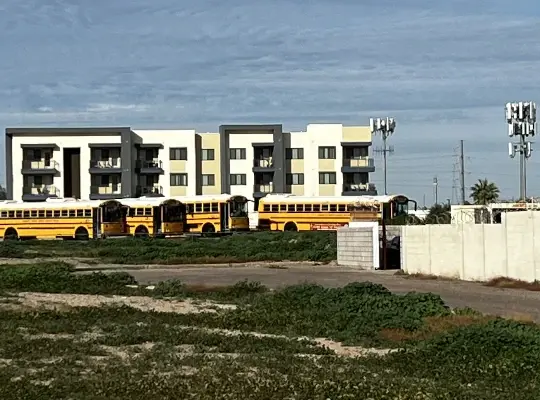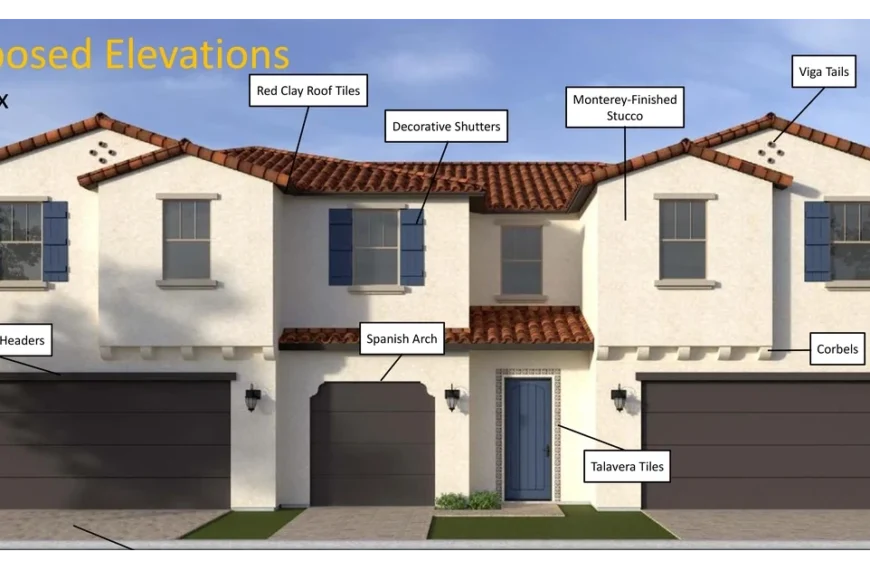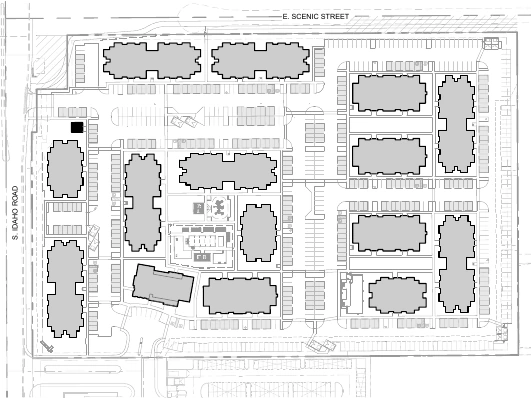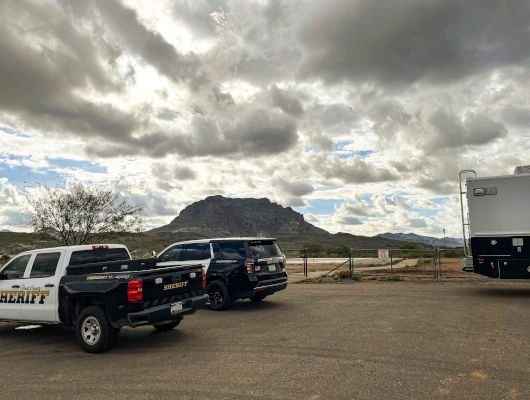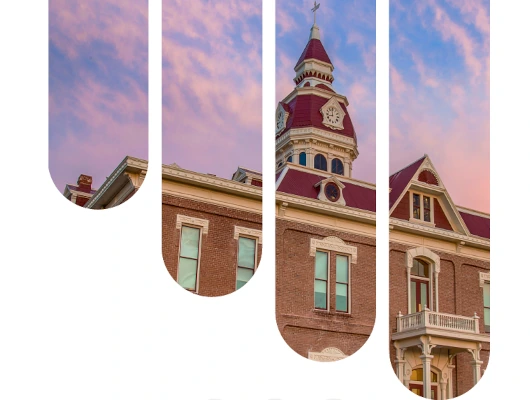The Casa Grande Planning and Zoning Commission voted 4-3 on Thursday to approve a major site plan for an Everhome Suites extended-stay hotel at the southeast corner of 9th and Colorado streets, despite strong opposition from neighboring residents.
Project Details and Vote Outcome
The approved development will be a three-story, 35-foot-tall hotel with 117 rooms and 119 parking spaces on a 2.85-acre site. The 57,821-square-foot Everhome Suites will include amenities such as a fitness center, laundry service, business center within the lobby, BBQ and gathering spaces, and meeting rooms.
Commissioners Garrett Aldrete, Mark Vanderheyden, and Rick Peters joined Chairman Brett Benedict in voting yes, while Commissioners Cortez Smith, Chris Hubbard, and Vice Chairman Celeste Garza voted no.
“Been a lot of good discussion on this issue and a lot of good concerns about what the usage, what might happen with this usage,” Benedict said before casting the deciding vote. “But it’s been pointed out and it’s something that I’ve always talked about, that you can do with your property what you would like to do, as long as it fits. We set up these rules. As long as it fits these rules, then you need to be able to do what you need to do with your property.”
Site History and Property Background
The 4-acre property has remained vacant for approximately 30 years. The site was annexed into Casa Grande in 1973 as part of the Florence & Peart Annexation and was zoned B-2 (General Business) in 1975. This zoning designation has allowed hotels as a permitted use since 1987, with a maximum height of 35 feet and a minimum distance of 45 feet from residential zone boundaries.
The property is owned by the Speckert Gift Trust. During public comments, Matt Herrington of Rox Real Estate said he was speaking on behalf of the owner, claiming that the owner “has owned this land since 2005” and “one of the primary reasons he purchased it was because of the zoning.” The owner went under contract with the applicant in November 2024.
Surrounding Area and Zoning Issues
The hotel site sits at a critical junction between commercial and residential zones. To the north across 9th Street lies the Acacia Landing single-family neighborhood, while to the south are commercial establishments including Mor Furniture and Dollar Tree. The property is bounded by two collector roads – 9th Street and Colorado Street.
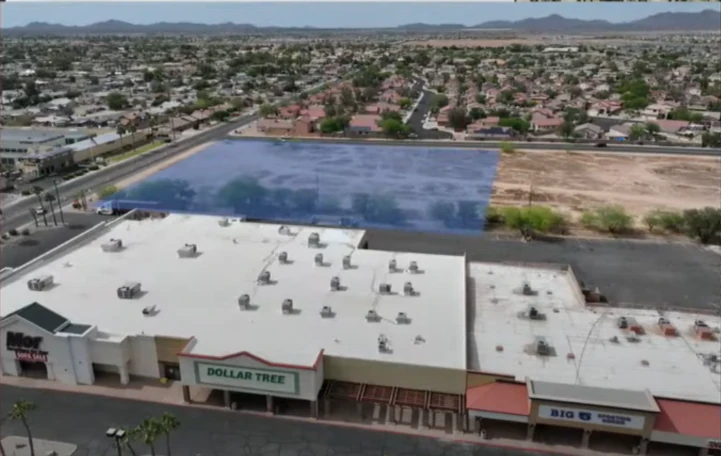
The closest single-family properties in the Acacia Landing neighborhood are 175 feet away from the proposed hotel building. The residential area has a maximum permitted height of 28 feet, making the 35-foot hotel significantly taller than surrounding homes.
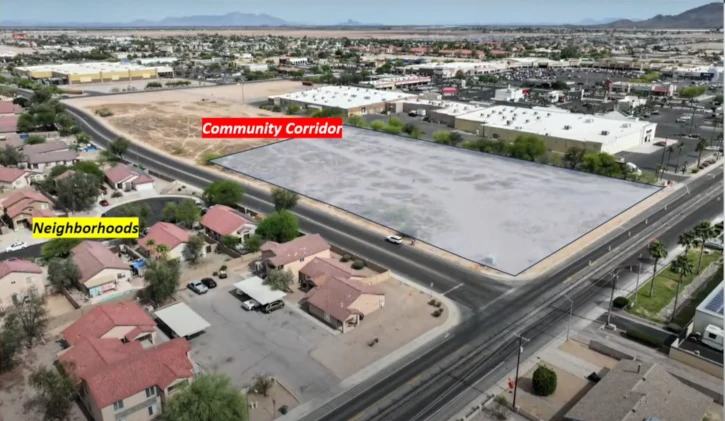
Conditions to Address Neighbor Concerns
Staff recommended several conditions to minimize impacts on the residential neighborhood:
Landscaping and Setbacks:
- A 50-foot landscape buffer between the parking area and 9th Street (where only 15 feet is required)
- Building setback of 112 feet from 9th Street (where 45 feet is the minimum)
- Building setback of 44 feet from Colorado Street (where 35 feet is the minimum)
Lighting and Signage Restrictions:
- Wall signage on the north elevation limited to the first 12 feet of building height with no internal illumination
- Free-standing signage limited to monument-style signs: 8 feet maximum along 9th Street and 15 feet maximum along Colorado Street
- All lighting must have full cut-off shields to prevent light bleed onto adjacent properties
Additional Measures:
- Three-foot screen walls adjacent to parking areas to minimize headlight glare
- Primary access placed at the south end of the site off Colorado Street
- Trash enclosure positioned at the south end to minimize noise
- 10-foot right-of-way dedication for Colorado Street
- Construction of public sidewalks along Colorado and 9th streets
Police Service Call Statistics
Staff presented data comparing police service calls at area hotels between January and December 2024:
| Hotel | Acres | Rooms | Calls for Service | Calls per Room |
|---|---|---|---|---|
| Quality Inn | 2.31 | 80 | 65 | 0.81 |
| Siegel Suites Select | 7.6 | 480 | 375 | 0.78 |
| MainStay Suites | 1.78 | 71 | 52 | 0.73 |
| Radisson | 5 | 176 | 117 | 0.66 |
| Best Western | 2 | 68 | 6 | 0.08 |
Hotel Design and Access Control
Senior Planner James Gagliardi emphasized the difference between Choice Hotels properties and Siegel Suites. Everhome Suites and MainStay Suites, both owned by Choice Hotels, feature interior access through a controlled lobby, while Siegel Suites has exterior-accessed rooms.
“Unlike Siegel Suites, MainStay and Everhome are both a Choice Hotel Brand,” Gagliardi explained. “Everhome will be interior accessed like Mainstay. Siegel has exterior accessed rooms, which means there is less control of visitors to the site, which does create safety management challenges.”
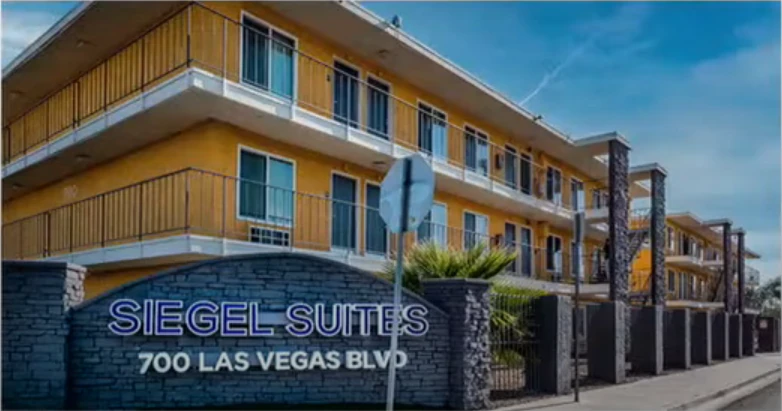
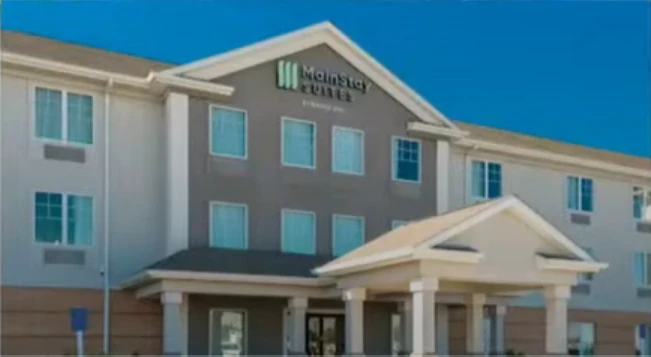
The proposed Everhome would have 46 more rooms than the existing MainStay Suites but 363 fewer rooms than Siegel Suites.
Traffic Analysis
A Traffic Statement was prepared by Kimley-Horn and reviewed by the City’s Traffic Consultant, who found the statement and plan acceptable. Staff analysis showed the hotel would generate 936 daily trips, with 54 trips during the AM peak hour and 69 trips during the PM peak hour. Traffic Engineer Clark Clantanoff noted that 9th Street, Colorado Street, and Pottebaum Road are all collector roads designed to handle the anticipated traffic volume.
Extended-stay hotels typically generate less traffic than retail establishments. “Hotel uses generally have smaller trip generation than retail,” Gagliardi explained. “Extended stay hotels likely have quelled peak hours versus shorter-stay hotels. Retail uses would promote drive-through traffic in neighborhoods, while hotel traffic is more destination focused and reliant upon arterial and collector roads.”
Public Opposition
Residents opposed the project through multiple venues, including 21 written responses to the city, attendance at a May 29th neighborhood meeting with 24 people signing in, and public comments at the Planning Commission meeting where approximately 10 residents spoke against the project, citing concerns about crime, property values, traffic safety, and compatibility with the neighborhood
Amy Johnson, a nearby resident, expressed safety concerns: “I feel endangered by it. I read their reviews on EverHome Suites. Homeless people in the parking lot, drug deals, drug use, tons of calls for service. Their landmark in Corona, California has dropped their property values for three years since they put it up.”
James Stilwell, an Acacia Landing resident, argued against the extended-stay model: “Extended stay hotels are fundamentally different from traditional hotels. They often serve as temporary housing for transient guests, some staying for weeks or even months. This change in character brings with it significant concerns, especially when placed next to a stable residential neighborhood like ours.”
Melinda Rae Burroughs cited property value concerns based on the Corona, California location: “Corona California, their crime rate went through the roof.” She continued: “When Evermore took it over, it went from having basically zero crime rate to up to 17 calls a day.” Regarding property values, she added: “Those neighborhoods took a nosedive… Most of them have not recovered.”
Bill Maxam questioned the location choice: “People come through town and they stay here for Lucid or for whatever… If that’s what you think this is going to do, put up Extended Stay Hotel by Lucid… that way they don’t have to drive to work.”
Simone Simpier-Maxam raised concerns about children’s safety: “There’s a large number of students that live in Acacia Landing. All it takes is one child. I worked at Vilago Middle School for 10 years and all it takes is one child to be afflicted by trafficking or crime or drugs, or whatever that may be. Places like that are known to attract negative crowds.”
Developer and Supporter Comments
Rox Real Estate representatives Beatrice Lueck and Kelly Herrington spoke in favor of the project, representing the buyers. Lueck read a letter from Dallas Giddens of Giddens Tire Pros, who wrote: “This is an amazing project that is much needed in our community. The extended stay hotel will bring a needed addition to the other similar facilities of Casa Grande. I watched this vacant land sit for the past 30 years and have seen how bad it looks when the unattended weed and vegetation growth gets out of hand.” Giddens Tire Pros is less than a half mile from the proposed hotel.
Herrington of Rox Real Estate shared her personal experience: “When I was growing up, I moved and lived in six different states from the time I was born until high school and there were some times when my dad got transferred for his job, we had to stay in extended stays because our house wasn’t ready… Not all these people that you think are going to stay in an extended stay are bad. They are families. They are people who work.”
Choice Hotels, which describes itself as having “80 years of innovation in the hospitality industry” and being “one of the world’s largest hotel companies,” launched the Everhome Suites brand in 2020. In the developer narrative document they described the intended guests, stating that in Everhome Suites “Most of the guests will be traveling on business, often on long-term work assignments or relocating. This includes healthcare professionals like nurses in your local hospitals and professionals in the information technology, construction, healthcare and advanced manufacturing industries supporting projects in your city. Families will be searching for a permanent home in your community. A smaller subset of guests will be traveling on extended vacations.”
Representative Alex Feldman addressed crime concerns: “Unfortunately, more and more recently, it’s something we see more. To us, it’s not a matter of if it happens, whether it’s homeless or a crime, or any sorts of those things. It’s really how we deal with it. Whether it’s at a hotel or a Starbucks or a Panera, these things tend to happen in public spaces like that, where people are coming in and out.”
Former Casa Grande Mayor Craig McFarland, now president and CEO of Pinal Partnership, supported the project: “We have 2,500 employees at Lucid who can’t find a place to stay. We have 500 more coming with the next million square foot of warehouse that they’re building. So with that, with Kohler, with all of the industry we have here in Casa Grande, we need places for people to stay.”
Legal and Regulatory Context
The approval occurred against the backdrop of House Bill 2447, which will take effect December 31, 2025. This legislation requires cities to allow administrative approval of site plans without public hearings for properties with existing zoning that permits the proposed use. Cities have until the end of the year to update their codes to comply. Currently, Casa Grande requires major site plans to go before the Planning Commission for approval, but after the law change, they will be reviewed and approved administratively by staff.
Commissioner Garrett Aldrete emphasized the legal constraints: “This property owner has B-2 zoning. They are permitted to do the hotel use. It’s not a conditional use. They are permitted by right to do that use as long as they meet all the standards of our code. They are currently showing they meet all the standards of our code.”
Aldrete warned that denying the application could result in legal challenges: “Our decision cannot be considered arbitrary and capricious, because if it is, the property owner can challenge it… We would be taking something, the permitted use that they’re already currently allowed to do, we are taking that right from them with no just compensation.”
Vice Chairman Celeste Garza disagreed with this legal interpretation: “That is your opinion,” she said, noting there are numerous other permitted uses in B-2 zoning besides hotels. “There’s a lot of other things in that zoning that he can do with that property. Not just hotels.”
Aldrete maintained his position: “So if you’re asking if the city can go about… if the city were to amend our code and remove a use that people are already entitled to, again, that’s a takings. We can’t just amend our zoning code and remove a use from a zone that you already have.”
The disagreement highlighted tensions over balancing property rights with community input, especially given that the 4-acre property has remained undeveloped for 30 years despite its B-2 zoning.
The B-2 zoning allows numerous other uses including auto dealerships, banks, bars, convenience stores, community centers, retail establishments, gyms, hospitals, offices, restaurants, and religious institutions.
Commission Debate
The commission struggled with balancing property rights against community concerns. Commissioner Chris Hubbard expressed frustration with the location: “Normally, they face major arterial roads or by the freeway. This doesn’t make sense where they’re putting it at all.”
Vice Chairman Celeste Garza acknowledged the community input: “I have a real hard time with the fact that we have a lot of public comment and a lot of people in the community that don’t feel like this product fits this location.”
However, Commissioner Rick Peters defended property rights: “I’m still a believer that somebody has a piece of property, they have a right to sell that piece of property, as long as it follows the codes that are set forth in front of the city, and we have to go along with those codes as a commission.”
Future Implications
With the approval granted, the developer must meet several conditions before construction can begin, including splitting the parcel, dedicating right-of-way for Colorado Street, and ensuring compliance with signage restrictions.
The project represents one of the last major site plans that will require Planning Commission approval. Starting January 1, 2026, similar projects with existing appropriate zoning will be reviewed administratively by city staff under the new state law, significantly reducing the public hearing process and community input opportunities for by-right permitted site plan proposals.

